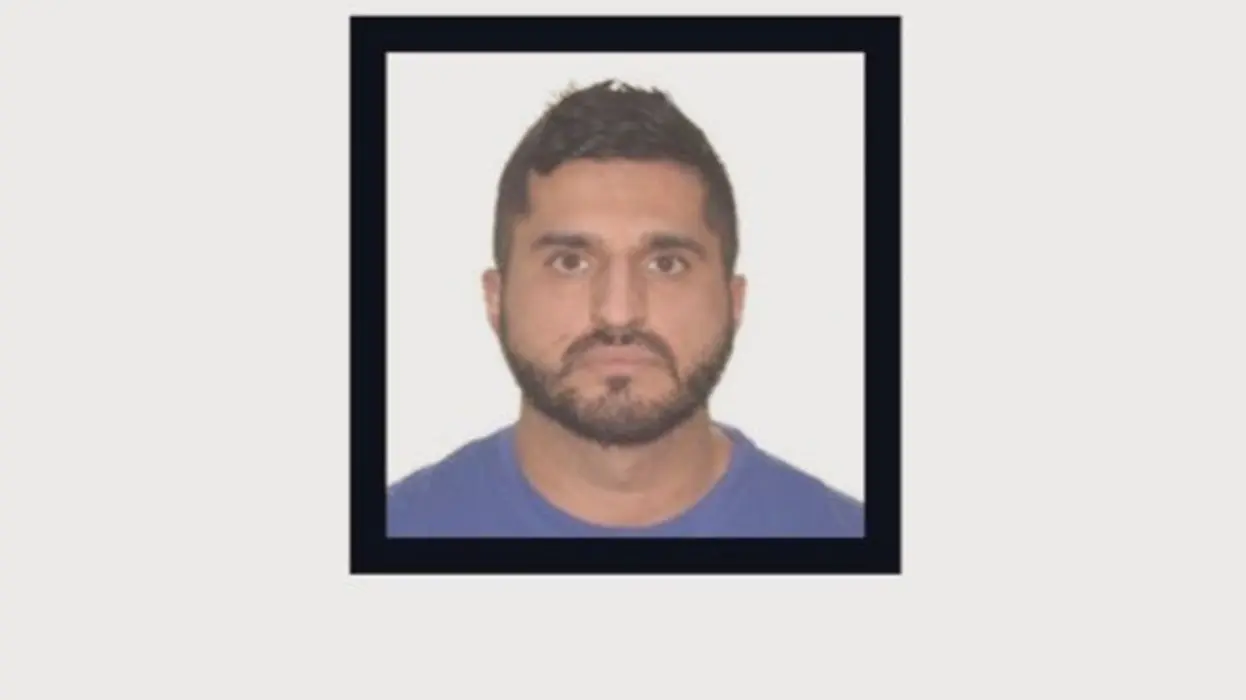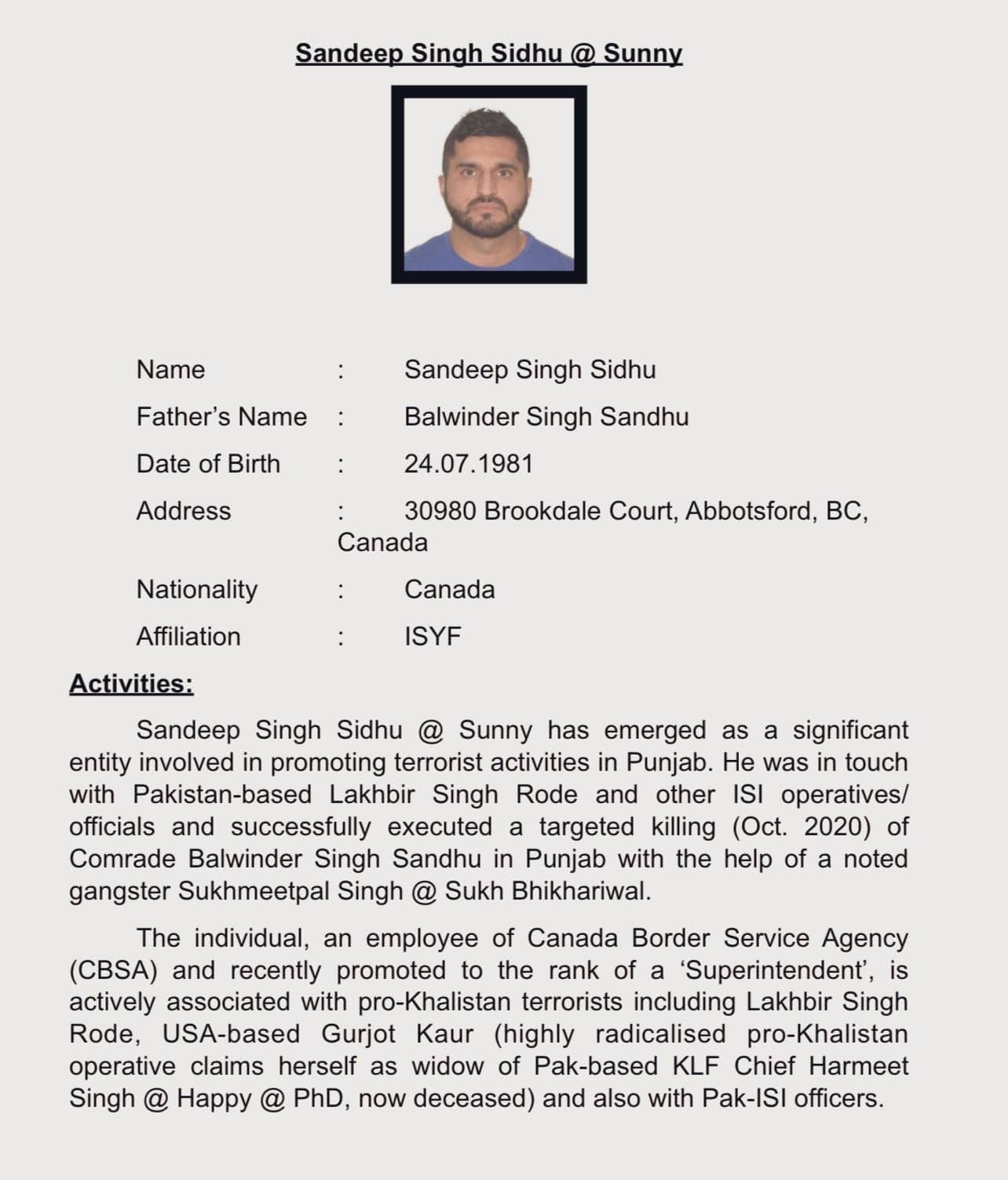Updated 19 October 2024 at 10:27 IST
Who is Sandeep Singh Sidhu - the Canada Border Police Official Named by India in Terror Case
Sandeep Singh Sidhu, an employee of CBSA and a member of the banned International Sikh Youth Federation, is accused of promoting terrorist activities in Punjab.
- World News
- 4 min read

New Delhi: Amid escalating diplomatic spat between India and Canada over the killing of Khalistani terrorist Hardeep Singh Nijjar, New Delhi has named Sandeep Singh Sidhu, an employee of the Canada Border Service Agency (CBSA), for his alleged involvement in promoting terrorist activities. India has demanded Sidhu’s deportation, accusing him of direct links to terrorism. This development comes at a time when relations between the two nations are already strained over the killing of Khalistani terrorist Hardeep Singh Nijjar.
The diplomatic fallout, which began when Canadian Prime Minister Justin Trudeau and the Royal Canadian Mounted Police (RCMP) accused India of targeting Sikh separatists in Canada, has now intensified with these new revelations. Trudeau claimed that Indian diplomats were involved in sharing intelligence with criminal groups in India, leading to violent acts against pro-Khalistan activists in Canada. Dismissing Ottawa's allegations, India expelled six Canadian diplomats on Monday and announced that it was withdrawing its High Commissioner in Canada.
Who is Sandeep Singh Sidhu?
Sandeep Singh Sidhu, also known as Sunny, is an employee of the CBSA and is reportedly affiliated with the banned International Sikh Youth Federation (ISYF), a group with ties to Khalistani extremism. Sidhu’s name was added to India's list of wanted fugitives based on his alleged role in the assassination of Comrade Balwinder Singh Sandhu, a prominent figure in Punjab 's resistance against Khalistani militants.
Advertisement
According to reports, Sidhu worked closely with Pakistan -based Khalistan terrorist Lakhbir Singh Rode and other ISI operatives to execute the targeted killing of Sandhu in October 2020. Sandhu, a Shaurya Chakra awardee, was a staunch opponent of the Khalistan movement and became a symbol of resistance against separatism in Punjab during the region’s violent militancy. Sandhu was known for his vocal opposition to Khalistan referendums held in Canada and the United States by pro-Khalistan groups such as Sikhs For Justice (SFJ).
Despite his alleged involvement in the killing, Sandeep Singh Sidhu was recently promoted to the rank of superintendent at the CBSA. This promotion has raised concerns within the Indian government, which has now pressed Canada for his immediate deportation. Indian officials have submitted evidence to the Trudeau government, highlighting Sidhu’s terrorist links and his association with pro-Khalistan elements both in Canada and abroad.
Advertisement
In a detailed report, the National Investigation Agency (NIA) has named Sandeep Singh Sidhu alongside Lakhbir Singh Rode as masterminds behind the assassination of Sandhu. The report also suggests that Sidhu may be using the alias "Sunny Toronto" and had coordinated with the gangster Sukhmeetpal Singh, alias Sukh Bhikhariwal, to carry out the killing.
Sidhu is not the only individual under scrutiny amid the growing diplomatic tensions. The RCMP recently named Indian High Commissioner Sanjay Kumar Verma, along with other diplomats, as persons of interest in the killing of Hardeep Singh Nijjar. The RCMP further alleged that the Lawrence Bishnoi gang, active in Canada, has ties to Indian government agents and may have been involved in targeting Sikh separatist activists.
Terror Links and International Complications
Sandeep Singh Sidhu’s alleged role in orchestrating acts of violence extends beyond the 2020 assassination. According to Indian intelligence, Sidhu has been actively collaborating with pro-Khalistan terrorists, including USA-based Gurjot Kaur, who is linked to Pakistan ’s Inter-Services Intelligence (ISI). Gurjot Kaur, a radicalised operative and the widow of slain Khalistan Liberation Force (KLF) chief Harmeet Singh, is said to be coordinating with ISI officers to further the Khalistan agenda.
Sidhu’s position within the CBSA, a Canadian government agency, has further complicated diplomatic efforts between India and Canada. India has expressed concerns that Sidhu’s access to sensitive information and governmental authority could pose a significant security threat. Despite these concerns, Canada has yet to publicly respond to India’s request for his deportation.
As the diplomatic standoff continues, the issue of pro-Khalistan activities in Canada has become a central point of contention between the two nations. While Canada has emphasized the need to protect freedom of speech and the right to peaceful advocacy, India has consistently expressed frustration over what it sees as a lack of action against extremist elements operating on Canadian soil.
Published By : Rajashree Seal
Published On: 19 October 2024 at 09:38 IST
